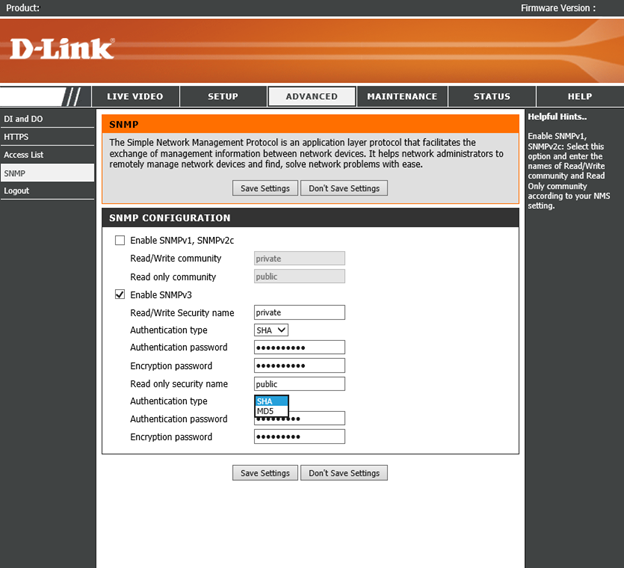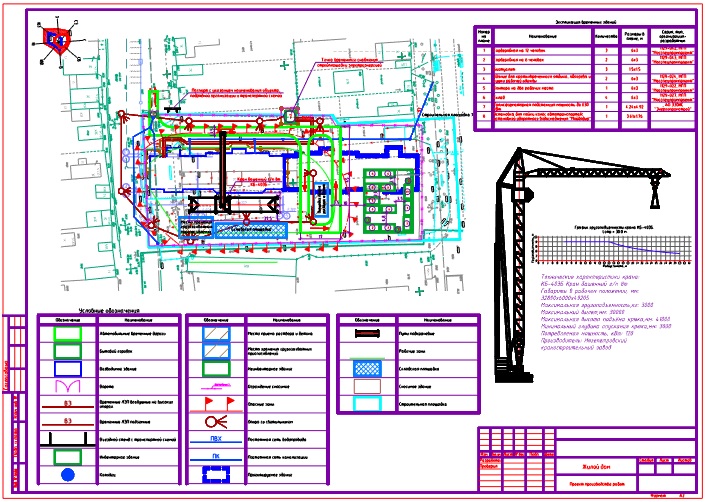Why we willingly hire juniors and advise everyone to do the same
Why Junes are a good investment
These days, junior specialists, as a rule, already know the theory quite well, but at the same time do not know how to apply knowledge in practice. They can be compared to novice drivers who have already learned the rules of the road, but have never been on a real highway. All they need to become confident developers is miles traveled on combat projects.
If you keep this simple thought in your head, then taking a junior to the team no longer seems like a crazy idea. Moreover, lack of experience is not always a disadvantage. The beginner has a fresh head into which he can put any information. Junes grasp all corporate standards and rules on the fly, which sets them apart from experienced developers who have worked through a dozen companies.
But, of course, this is not the only plus. We see several more clear advantages:
Junes take on simpler and more routine taskswhich means your middles and seniors burn out less. In addition, it is more economically profitable: if the buttons on the site are painted by a junior, and not by a senior with a huge salary, you save the company money.
Junes are more loyal to the company. Yes, it doesn’t happen just once, but if everything is done correctly, the junior developer will go with you for many years, right up to the position of team lead. This way you save significantly on hiring and solve the problem of highly qualified personnel for the future.
Economics junior specialist
We at the company conducted a small study – we tried to measure how investments in junior training pay off over time. We carefully monitored two key indicators: costs and profit. We got this graph:

Please note that we begin to receive a small profit from the first month of work of a junior specialist. True, the costs here are still high: this is the time of the team lead and other developers, the time of HR specialists and managers.
By about 4–5 months, the graph lines intersect. That is, after six months, June begins to fully pay for itself or even make its first profit. And after a year, costs tend to zero. It is important to understand that they will never completely disappear, as we continue to invest in the development of a specialist. But the dividends from his work are still incomparably higher.
Below I will try to analyze the main problems associated with hiring juniors and find out how solvable they are.
Problem #1. Not all Junes pull
It's true, not every person can show good growth. And there may be several reasons for this:
Problems with motivation. If a person does not want to develop, he will remain a beginner for life. And such employees really do exist. We can motivate them as much as we want, but it is still important that they themselves show enthusiasm, show ambition and set new goals.
How to motivate a team is discussed in a separate article.
Weak mentors. Not everyone is given the opportunity to teach colleagues. Some people are simply not interested in this, others have weak soft skills. And soft skills are very important here. A mentor is not just someone who helps with code. This is also a psychologist who must hear, understand and support.
Developer job is not suitable. I once had the opportunity to work with a person who was very charged, had a lot of ambitions, but nothing worked out for him in the technical department. At the same time, he had strong software, and soon he changed his specialization – he became a very good project manager who spoke the same language with the technical team.
Problem #2. Junes are additional costs
If you replace the word “cost” with the word “investment,” the problem no longer seems like a problem. Now this is an opportunity. Yes, sometimes investments don’t pay off, but more often than not they do. Well, in the end, there are three options for the development of events:
you get a rocket: the employee quickly grows and becomes a full-fledged combat unit;
you get a reliable specialist with a good base: the employee shows stable and moderate growth, growing at his own pace;
you “burn out”: you have to refuse the services of the junior, because he cannot cope at all.
In general, the stakes are not so high, and if you win, you get a full-fledged employee with whom you feel comfortable working and who is loyal to the company. It seems like we can take a risk.
Problem #3. There is no one to teach the Junes
This is not entirely true. For many developers, mentoring is a natural development path. My colleague Sasha Shutai wrote about this in the article about how we work with interns. Therefore, many of your colleagues will probably agree to take on the role of mentor – you just need to ask.
In addition, it is a good idea to train mentors within the company, offer them the right books, and nominate the most empathic and communicative developers for this role.
Memo: what is important when working with juniors
Now let's talk about how to avoid the above problems. Simple but effective steps will help with this:
customized onboarding process;
individual development plan (IDP);
gradual increase in task complexity and responsibility;
regular One-to-one;
providing positive and constructive feedback;
recognition of employee achievements.
Let's look at each point separately.
Onboarding
The first thing to do is to fine-tune the company’s onboarding process. The so-called onboarding checklists help us a lot with this. Essentially, this is a list of tasks that the team lead must complete to make the new person on his team feel comfortable. And the very presence of a checklist guarantees that he will not forget anything important.

Another good practice is to prepare in advance and put in the corporate Wiki a list of important documents that the employee should familiarize himself with during the first days of work. In our case, these include, for example, handbook company and several internal articles.
At the onboarding meeting, you can also briefly talk about the features of the company, team and project. At the same time, it is important to make it clear to the employee that he can address any questions to senior comrades. If he has a mentor, you can immediately introduce them.
An important step in onboarding is introducing the person to the team. This should not be something formal, a person should feel that he is seen and heard, he is now a full-fledged part of the team.
Individual development plan (IDP)
Since juniors have little experience and may have gaps in knowledge, it is important to correctly formulate a development plan for a new employee. For this, we, like a decent university, have a whole methodology. In short, the algorithm is as follows:
We take a cross-section of the employee’s knowledge to understand where his gaps are. Here it is important for him to make it clear that we do not put grades in the diary and that we need to understand its level solely for the IPR. Therefore, you need to answer him honestly, without Google.
Next, based on the cross-section results, we highlight the most important growth points and draw up an IPR for the quarter. We come up with various tasks so that the employee can practice this or that skill. The IPR includes specific skills: for example, mastering a new tool.
We make sure to make cuts according to the IPR. This way we let the employee know that we care about his development, and we also show our willingness to help with any questions that arise.
We provide a list of literature that will help an employee improve his hard and soft skills. Of course, we don’t conduct knowledge tests on these books, but it certainly won’t hurt to familiarize yourself with them.
Gradual increase in load
It is important to immerse Jun into work gradually. At first, it is worth giving simple and understandable tasks to allow him to get comfortable with the project, understand the processes and get to know the team. And then gradually increase the complexity of the tasks. At the same time, it is necessary to monitor how the employee copes.
If you have a high pace of work, it is better to introduce beginners to this pace gradually. You shouldn’t immediately bombard them with dozens of tasks, otherwise they will start to panic that they don’t have time to do anything. They will rush, make mistakes, get upset, etc.
In addition, it is important to give the employee feedback – both positive and constructive. You can’t just praise or just scold. At the same time, an important rule: we scold personally, we praise publicly. If you scold an employee in front of everyone, he will feel awkward and may withdraw into himself. This could also have a negative impact on his relationships with colleagues.
Regular One-to-one
I wouldn't open the bike if I said that communication is the key to a good relationship. Communication removes barriers, resolves conflicts, and develops mutual understanding. And for a junior specialist, who more often than others solves problems that are new to him, it is important to discuss with someone what is happening to him. This is what One-to-one meetings are for.
So that they are not formal, you also need to prepare for them – for example, ask questions that will allow the employee to talk and analyze their results. The main thing is not to ask them according to a list, as in a public opinion poll, but to motivate the interlocutor to dialogue.
Here are some topics that can be discussed:

It is better to conduct One-to-one no more than once every two weeks. The answers need to be analyzed carefully. And of course, it is important to respond to what was said: if an employee admitted that he does not have time to assimilate new information, you need to give him more time, etc.
June should give feedback too
To all of the above, it is worth adding one more important point. June should not only receive feedback from you, but he should also give it to you. He may not like the processes, your management style, or your approach to onboarding. All this can affect its results. And it’s better if he talks about it directly.
How to motivate him to be frank:
Create an atmosphere of trust. You need to show the employee that his opinion is valuable. Regularly ask his opinion on tasks, say that there are no stupid questions.
Voice clear goals and objectives. As I wrote above, the complexity of tasks needs to be increased gradually. At the beginning, break down large tasks into small and simple ones. This will help the junior understand the project and responsibilities better.
Openly discuss mistakes. Absolutely everyone makes mistakes. It is important to convey this idea to the new employee and explain that we learn from mistakes and do not get stuck. It’s better to learn from others, but you can learn from your own too.
Support development. The IPR and mentor, which I have already mentioned, are important here. Gradually, the junior needs to be given more and more complex tasks – as if to challenge him. This way the beginner will feel like he is making progress.
Learn to listen and hear. You need to be an active and empathic listener. Beginners need more time and attention to make them feel confident in what they do and say.
Do not put pressure and support the employee. I repeat: there is no need to overload the employee from the first days. And always support him, even if the results of his work are not ideal or require rework.
If you follow these basic rules, the beginner will be willing to tell you what works and what doesn’t. And it is important to know this; without this, you will not be able to correctly draw up the trajectory of its development. In addition, it helps to load him so that he begins to contribute to the team as early as possible.
Let's summarize everything we've learned
Junes are an investment. And like any smart investment, they quickly begin to pay dividends.
All problems that may arise when working with juniors can be solved. Yes, it will take some effort, but it will be worth it.
For the proper development of a junior, three components are enough: a good mentor, IPR and regular feedback – for the junior and from the junior.
And it’s important to remember: within a year or two, your junior will become a strong middle man, will begin to bring much more benefit and at the same time will be loyal to the company.
That's all. If you have questions, I will be happy to answer in the comments. In general, we talk quite a lot about managing the development team in our telegram channels: there is a channel about mobile development And about team leadership. So join us, let's get to know each other.





